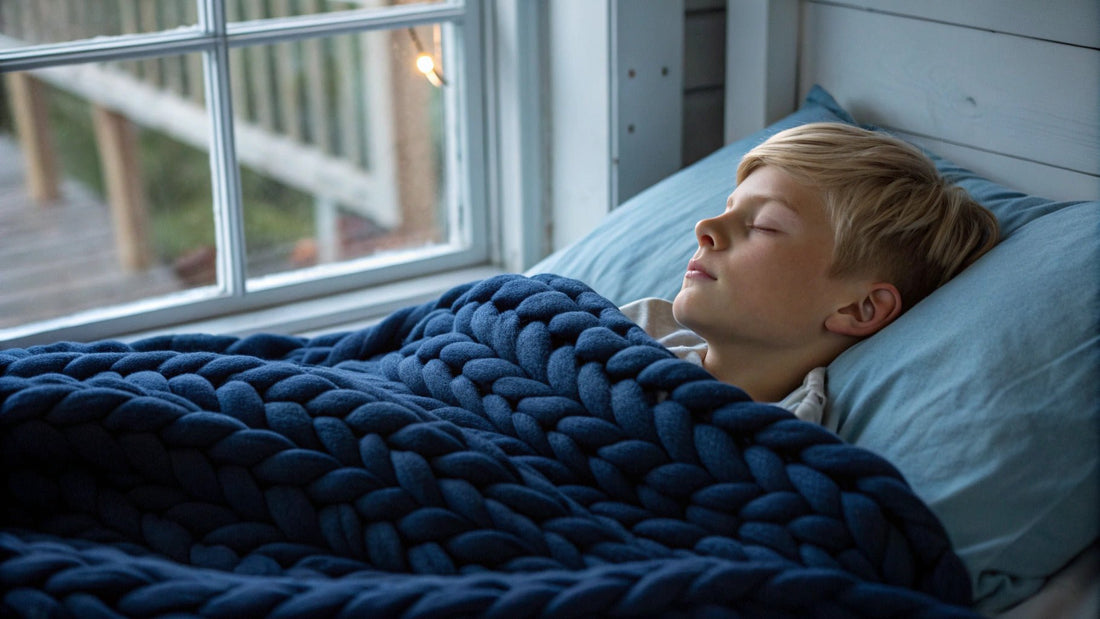
Do Weighted Blankets Help Kids Sleep Better? Myths vs Facts
Myth or fact? Weighted blankets are becoming increasingly popular—and many parents wonder: do they actually help kids sleep better? Let’s separate the myths from the evidence.
Quick answer: For some children, weighted blankets can help reduce bedtime anxiety and promote deeper sleep by offering calming pressure. But the scientific evidence is mixed—while many families report positive experiences, some studies show limited or no sleep benefits.
Common Myths vs. What the Research Suggests
Myth 1: Weighted blankets always improve kids' sleep
Fact: The truth is more nuanced. Research shows mixed results. Some children—particularly those with ADHD—seem to benefit from improved bedtime routines and calmer nights. Others, such as some children with autism or trauma-related sleep difficulties, may not see significant changes in sleep quality.
Myth 2: They work for every child, no questions asked
Fact: Not all children will benefit—especially those with no sensory needs or those who dislike the sensation of pressure. Comfort and preference play a big role in effectiveness.
Myth 3: They are unsafe or can cause harm
Fact: Weighted blankets can be safe when used correctly—typically weighing about 10% of body weight. However, they should never be used for children under 3 years old or for kids who cannot move the blanket easily. Safety and supervision are key.
How Weighted Blankets Might Help
Weighted blankets rely on deep pressure stimulation—gentle, steady pressure that mimics a hug and helps support the nervous system. This may:
-
Lower cortisol (the stress hormone)
-
Boost serotonin and melatonin (promoting calm and sleep)
-
Support emotional regulation and bedtime consistency
Final Thoughts
Does a weighted blanket help your child sleep better? It depends. For children dealing with anxiety, restlessness, or who respond well to sensory input, a weighted blanket may support calmer sleep and bedtime routines. But it’s not a universal solution—and its effectiveness varies by child.
If you decide to try one, choose an appropriate weight (around 10% of body weight), ensure safety, and see how it fits into your evening routine. If it helps your child relax and sleep more soundly—even a little—it may be worth it.
FAQ
How heavy should a kid’s weighted blanket be?
Around 10% of their body weight—when in doubt, go lighter.
Is it safe for all children?
No—avoid use in children under 3 or those who cannot move the blanket themselves.
Should it replace bedtime routines or therapy?
No. It works best as part of calming routines and in combination with other healthy sleep habits.



